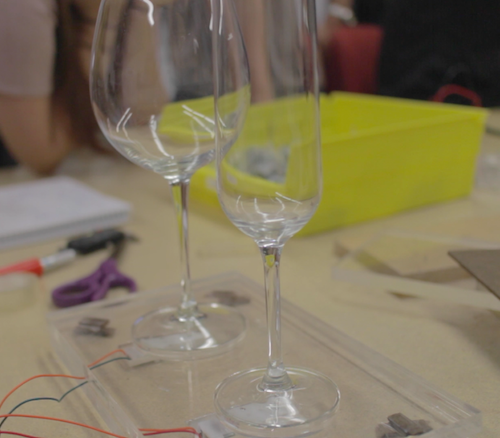My first milestone is :” Build circuits to make sounds first and then try to the recognition part”.
In the first two week, I tried the circuits to make sound at certain pitch. The circuit I use is the 555 timer circuits, by changing the resistor, the frequency of the signal of out put can be changed.
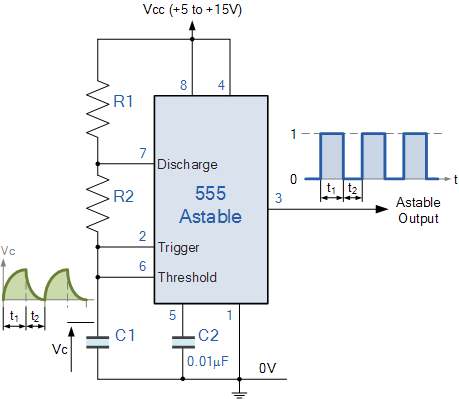
After building the below circuits successfully on bread board, the sound is not perfect, I add a low pass filter but it helps little. So I plan to solve this problem by mechanical way.
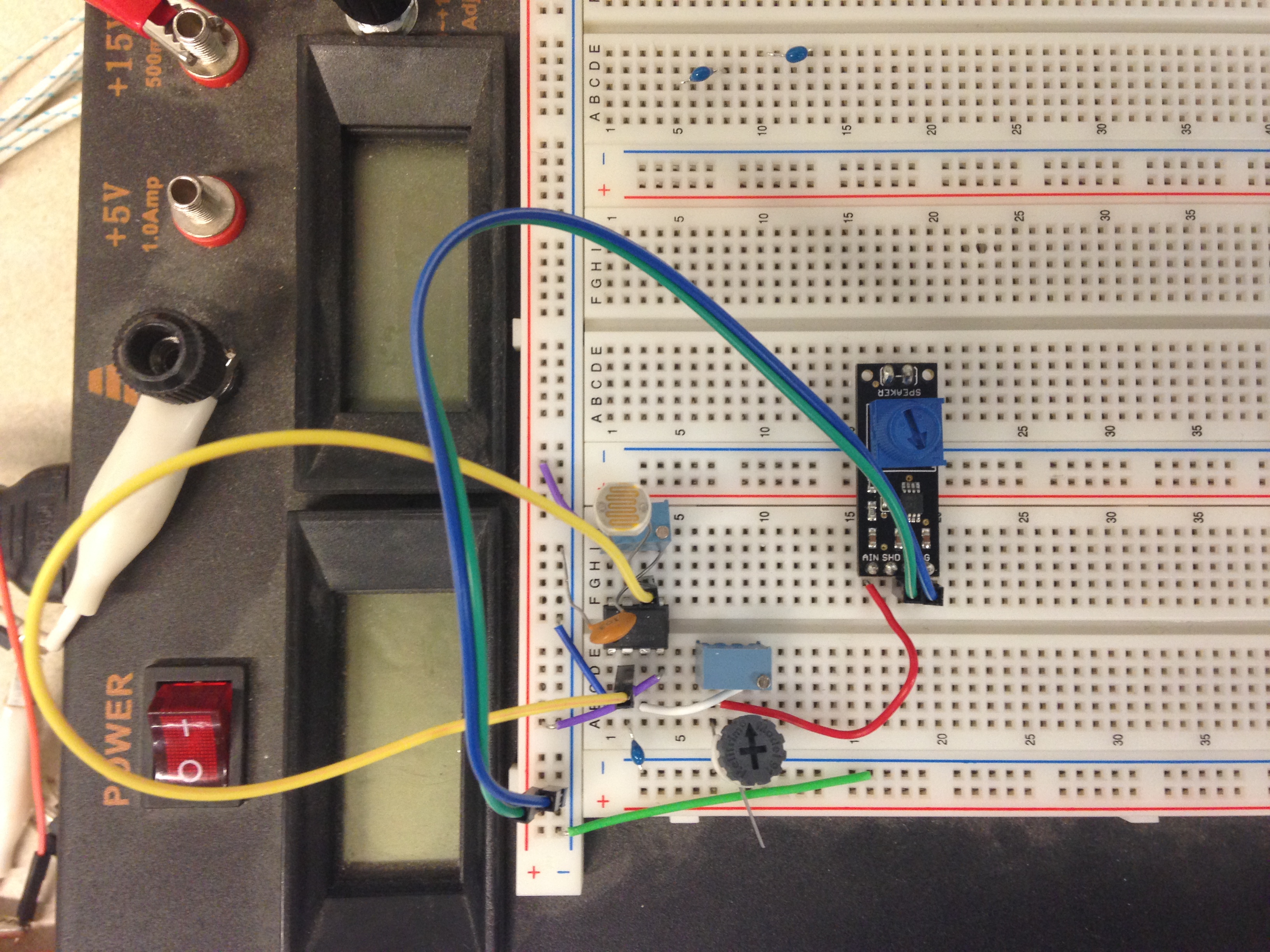
I soldering the circuits on proto board and add photo sensor and a switch. The photo sensor is in order to support the idea that by changing the cube’s up-face to change cube mode (i.e. # b ). As show in the video below, I also try to use different material covering on the speaker to get better audio effect. I’ll also keep trying other kinds of circuits to solve this.
About battery: the size of battery will limits my cubes size, so I plan to use use this one: www.sparkfun.com/products/341
2013-10-28 21.17.07 from Wanfang Diao on Vimeo.
Material
I have laser cut a wooden cube which is 5.5cm*5.5cm*5.5cm, but I feel the material is not cute enough.



So I plan to try more flexible materiel like image below which is silicone. I want the cube to feel like jelly.
I also realize that before I design the mother mold for silicone cube I have to decide the final electronic part design.
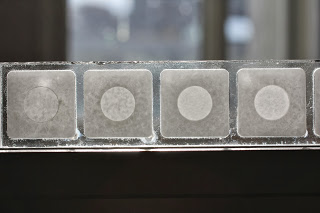

Below is a list of things needed to be done for this first milestone.
- Be familiar with 4D system workshop.
- Learn the limitations of the display: The kinds of data that can be displayed. Be familiar with the size.
- Figure out how to send data from the Wacom API to Processing
- Figure out how to send serial data from Processing to 4D system workshop.
- Laser cut the frame to house the display.

I did all the things I set out for myself for the first milestone. However, I need more time to play around with the screen to better understand its limitations. I laser cut a case to house the display, which is a very good idea because it is super fragile.
With a Processing built-in library, the communication between the Wacom tablet and Processing is easy to execute. It allows me to capture the pen strokes and send the data from the Wacom tablet to Processing in real time. As for the serial communication between Processing and 4D system workshop, I can now send serial data that draws basic shapes and writes texts on the screen. 4D system has a detailed documentation on serial communication that I can follow. However, without having any prior knowledge on serial communication, it did take me a while to understand how everything works. One problem I have right now is that I am unable to clear the screen after drawing a simple shape in order to do a basic animation (eg. a bouncing ball). There was some flickering on the display, and the program crashes.
1st milestone from Patt Vira
I think the initial step of getting basic animations to work on the display is very crucial. Once I have a better understanding of how to implement everything, I think creating applications will become much faster.
Slides and Patches of the HISS workshop available here.
My first milestone of ‘white beatles’ is that making bluetooth connection which contains not only a data stream also an audio. You can check the success in the this youtube.
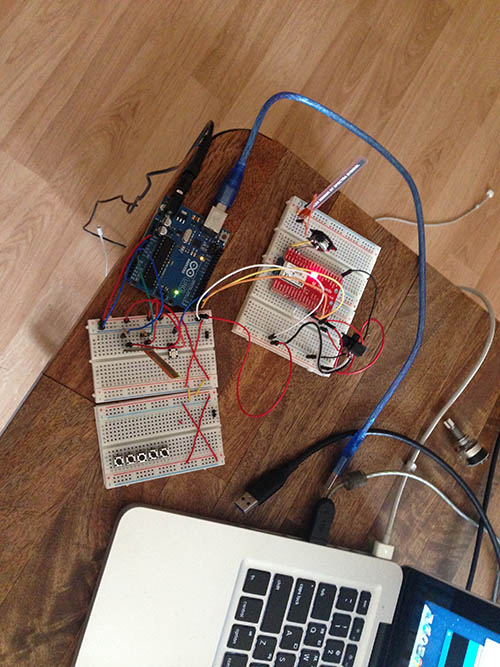
Actually, trying bluetooth connection with OSX is not easy job because there are not many kinds tutorials about how to add a communication port with new device that is the key part of the success. So, I have tried to test and find not exact tutorials for my new released RN-52 bluetooth board but related tutorials like for RN-42 and other serial communication technologies. However, here is a nice blog posting and it will be good for a beginner like me.
www.whizzosoftware.com/forums/blog/1/entry-48-bluesmirf-silver-bluetooth-modem-and-mac-os-x/
Also, I like to mention RN-52 manual link too. This small chip is very useful because it support audio and data streaming at the same time and it contains a mp3 codec chip and an audio amp.
ww1.microchip.com/downloads/en/DeviceDoc/rn-bt-audio-ug-2.0r.pdf
This is one of the best paper of UIST 2013, which shares common original idea with my final project.









